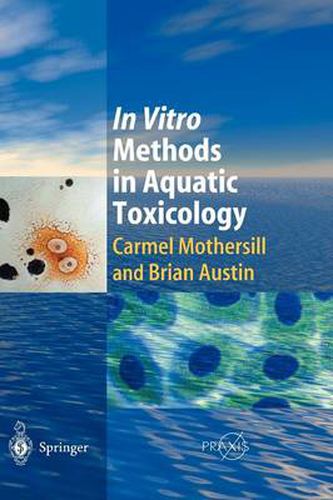Readings Newsletter
Become a Readings Member to make your shopping experience even easier.
Sign in or sign up for free!
You’re not far away from qualifying for FREE standard shipping within Australia
You’ve qualified for FREE standard shipping within Australia
The cart is loading…






This title is printed to order. This book may have been self-published. If so, we cannot guarantee the quality of the content. In the main most books will have gone through the editing process however some may not. We therefore suggest that you be aware of this before ordering this book. If in doubt check either the author or publisher’s details as we are unable to accept any returns unless they are faulty. Please contact us if you have any questions.
This book, the first of its kind in this subject area, will focus on in vitro approaches to the study of the toxicology of polluting agents (including heavy metals, radionuclides, micro-organics, estrogenic compounds, and complex mixtures) in the aquatic environment. The importance of in vitro methods is that they allow standardised techniques to be developed and validated for substance and species specific experiments in a controlled way. Also, they allow mechanistic studies without the problems of individual variation between animals and environmental stress.
$9.00 standard shipping within Australia
FREE standard shipping within Australia for orders over $100.00
Express & International shipping calculated at checkout
This title is printed to order. This book may have been self-published. If so, we cannot guarantee the quality of the content. In the main most books will have gone through the editing process however some may not. We therefore suggest that you be aware of this before ordering this book. If in doubt check either the author or publisher’s details as we are unable to accept any returns unless they are faulty. Please contact us if you have any questions.
This book, the first of its kind in this subject area, will focus on in vitro approaches to the study of the toxicology of polluting agents (including heavy metals, radionuclides, micro-organics, estrogenic compounds, and complex mixtures) in the aquatic environment. The importance of in vitro methods is that they allow standardised techniques to be developed and validated for substance and species specific experiments in a controlled way. Also, they allow mechanistic studies without the problems of individual variation between animals and environmental stress.